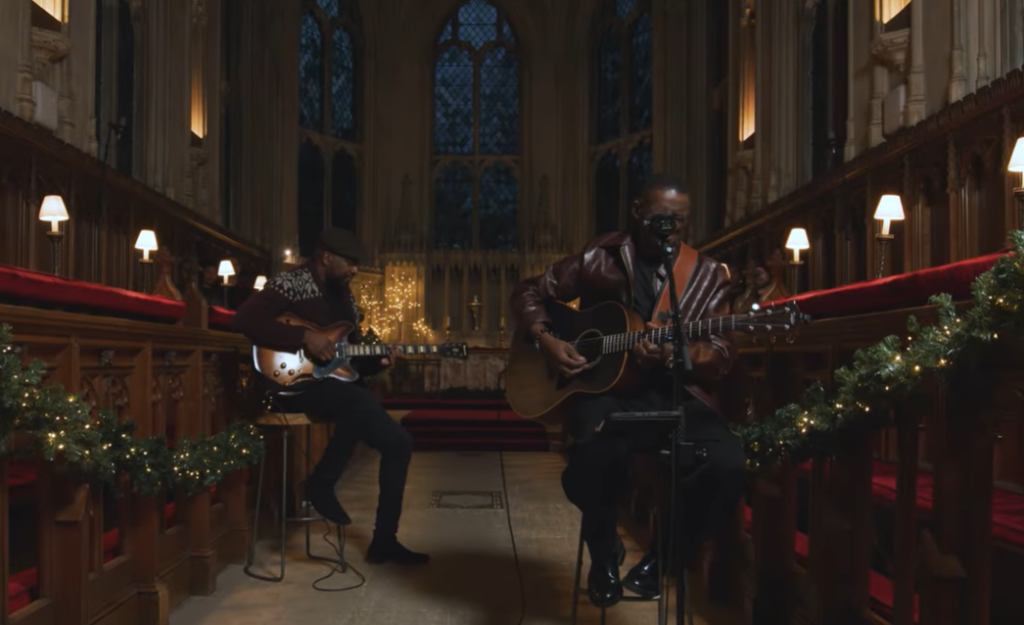A best-seller by a self published, first time author William P. Young in 2007. Penned for his six children to explain his own journey through pain and misery to ”light and transformation” (USA Today), The Shack has glowing reviews from some critics. It’s sold over 20 millions copies and has been translated into 39 languages!
The film is set to be released this March by Lionsgate Entertainment, the producers of ‘Life Of Pi’ and ‘The Blind Side’ with music courtesy of Tim McGraw and Faith Hill, NeedtoBreathe & Hillsong United amongst others. It has also had endorsements from the likes of Eugene Peterson & Michael W Smith as well as appearing on CBN’s 700 Club show.
The book tells a fictional story of a man whose daughter has been killed. He is given a mysterious message to meet at “the shack” where his daughter was apparently killed and encounters God. In doing so, Young, portrays the Trinity: God the Father is portrayed as an African American woman who calls herself Elousia Papa; Jesus Christ is a Middle-Eastern carpenter; and the Holy Spirit portrayed as an Asian woman named Sarayu.
This hasn’t gone unnoticed!
A UNIQUE PORTRAYAL OF THE TRINITY?
Although The Shack deals with Christian themes, many have expressed concern not only over the portrayal of God but over the numerous messages that they state are heretical.
In portraying the Trinity as two women and a man, has Young led readers astray?
A supporter of this controversial portrayal by Young writes: “The author portrays the Trinity in a unique way. I understand that some readers will be uncomfortable with this portrayal, especially with God The Father as an African American woman and the Holy Spirit as a mysterious Asian woman named Sarayu.”
This depiction is one of the many things that many critics have taken issue to:
“Thoughts tumbled over each other as Mack struggled to figure out what to do. Was one of these people God? … Since there were three of them, maybe this was a Trinity sort of thing. But two women and a man and none of them white? Then again, why had he naturally assumed that God would be white? He knew his mind was rambling, so he focused on the one question he most wanted answered.”
(The Shack, p. 87)
Wayne Jacobsen, an author who consulted on the writing of the novel and formed the company that would later publish it, wrote:
“The book uses some characterisations of God to mess with the religious stereotypes only to get people to consider God as he really is, not how we have reconstituted him as a white, male autocrat bent on religious conformity,” Jacobsen said. “There are important reasons in the story why God takes the expressions he does for Mack, which underlines his nature to meet us where we are, to lead us to where he is.”
Opposing the imagery the book presents, the popular GotQuestions.org website also published a review of the book, stating:
“By using the Trinity as characters, The Shack is clearly indicating that it’s talking about the God of Christianity. But God has said certain things about Himself in Scripture, and much of what’s in this novel contradicts that.
More importantly, why does the author feel the need to change the character of God in this story? In a way, he’s saying that the God who reveals Himself to us in the Bible is insufficient. The author needs to “improve” the image to make it more palatable. But God never changes Himself so that we can understand Him better. He changes us so that we can see Him as he truly is. If God changed His nature, He would cease to be God.
If a friend had a cold, abusive father, don’t make the God of your story into a warm, loving female to compensate. Show your friend what a true father is like, using the example from Scripture…”
DAMAGING TO SOULS
Christian leaders state that if the scheduled national film release is faithful to the text of the book, its distribution could “far outweigh” the harm done to souls by the printed page. Many have noted that Young’s book, teaches a concept called: Universalism.
Christian universalism teaches that Jesus is the only way, that all will be saved, and that salvation occurs quickly after death for those who have not become Christians in this life. Another variant is that those who are not Christian in this life will convert to Christianity in the afterlife after suffering varying degrees of punishment. Another, Unitarian Universalism, teaches that everyone of all faiths will be saved and that Jesus is not the only means of salvation.
James De Young, a professor of New Testament Language and Literature at Western Seminary in Oregon, wrote a book entitled: “Burning Down the Shack: How the ‘Christian’ Bestseller is Deceiving Millions” and states:
“A relationship with God comes only by personal trust or faith placed in Jesus Christ,” he told WND. “For the book to ignore this core of faith is to propound another and different gospel to that of Jesus and the Apostles. It is the heart of the gospel, but it is ignored in the heresy of universal salvation.”
The GotQuestions Website’s Review of ‘The Shack’ states:
“…subtle and not-so-subtle heresies. Young’s intentions are good. He wants to introduce readers to a loving God who was willing to sacrifice his own Son to save us from our sins. But all heresies begin with misconstruing the nature of God… He wants desperately to show us the God of love as found in Scripture (1 John 4:8), but he ignores the other side, the God of utter holiness (Isaiah 6:1-5) and, ultimately, the final Judge (Revelation 20:11-15). Any presentation of God that shows only one side of His nature is wrong….
….By emphasising only one part of God’s nature, The Shack actually leads readers astray with regard to God’s attitude towards sin. Papa tells Mack, “I don’t need to punish people for sin. Sin is its own punishment, devouring from the inside. It’s not my purpose to punish it; it’s my joy to cure it….”
BUT ISN’T IT ONLY FICTION?
Shouldn’t this be taken with a pinch of creative salt? Isn’t this an author’s creative way of presenting God to individuals, namely, his children?
The Shack has been touted by some as “a new ‘Pilgrims Progress”, a notable Christian allegorical book.
One defence of The Shack stated that since it is fictional and allegorical, we need to realise that and not worry about what it teaches. But if we ignore the fact that the book is teaching falsehood, isn’t that dangerous regardless of it being fiction or better yet, ‘Christian Fiction’.
Wouldn’t a well written allegory about God, be careful not to teach falsehood?
“The huge difference between the two books is that Pilgrim’s Progress is an allegory based on biblical truth, whereas The Shack attempts to be an allegory to teach truth, but it is based on someone’s newly-formulated definition of the nature of God and His desire for a relationship with all of us.” states Caryl TV
With so many esoteric and new age concepts & phrases, can this be truly able to represent the gospel and lead people into the light of Christ or are we limited by a religious status quo in our modern view of Christianity?
WHAT DOES THE BIBLE SAY?
Scripture admonishes us to watch our life and doctrine closely “that we should no longer be children, tossed to and fro and carried about with every wind of doctrine, by the trickery of men, in the cunning craftiness of deceitful plotting, but, speaking the truth in love…” (Ephesians 4:14-15). This book and film are prime opportunities to evaluate our beliefs to find out if it matches with scripture.
You may not be a theologian but the scripture encourages us to study the word to be approved in our use of it. With that comes an opportunity for believers to engage on all platforms available with others and contend for the faith.
Jesus promises that the Holy Spirit, the Spirit of truth, will guide us into all truth…









